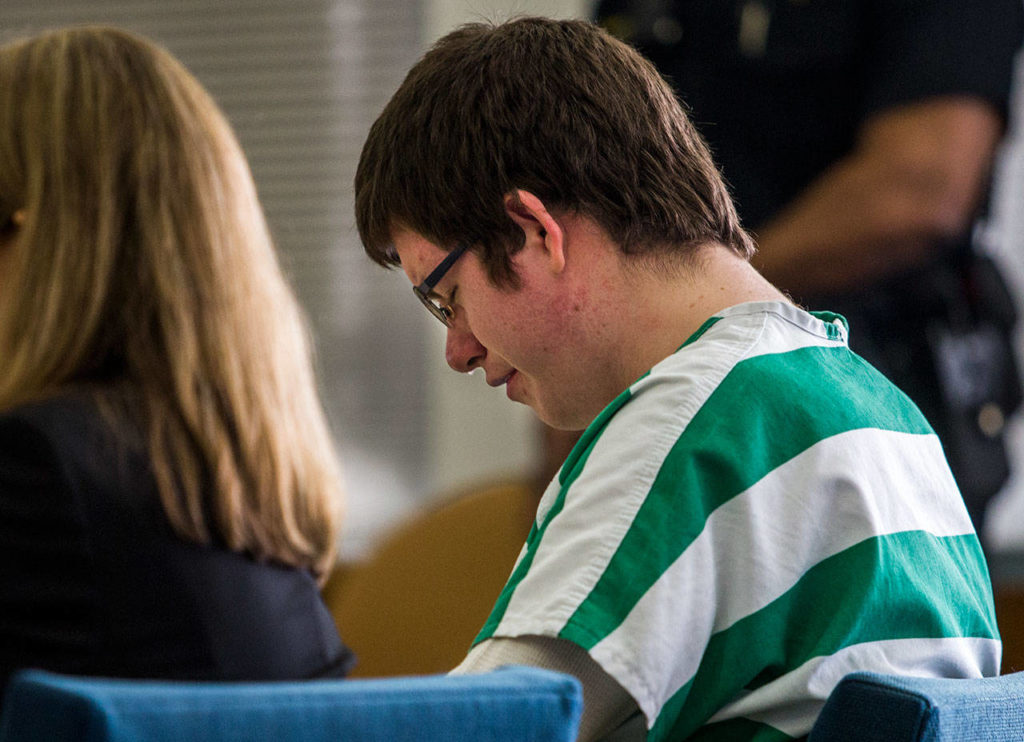EVERETT — Andrew Henckel knew what he was doing when he drowned his 6-year-old nephew, Judge Linda Krese said Wednesday.
He was sentenced to 18 years and 4 months after pleading guilty to second-degree murder in Snohomish County Superior Court. The time falls on the high end of state guidelines for that offense.
Henckel, now 21, lived in Texas, but had been staying at his sister’s home in Lynnwood for about a week before the death.
On Oct. 16, 2017, he was left alone to take care of his sister’s son, Dayvid Pakko.
Henckel told detectives that he thought about killing Dayvid a few minutes after his sister’s boyfriend left the house. Henckel went to the bathroom, filled the tub with water and called over his nephew, according to charging documents. He then held Dayvid’s head under water for about 30 seconds, until he stopped moving. Henckel hid the boy’s body in a trash container across the parking lot.
Henckel told police he had been napping on the couch when Dayvid disappeared. “I’m just assuming he got lost or something,” he said.
Dayvid’s mother said her son had autism, but he never wandered off by himself.
That same night, Henckel took part in a search party involving hundreds of people. Dayvid’s body was found around 2 a.m. Henckel was watching from a distance and turned to leave, but detectives arrested him.
At the Snohomish County Sheriff’s Office, he described what happened. He couldn’t say why he did it, but said he knew what would happen when he kept Dayvid’s head under water.
“What happens to somebody when they drown?” a detective asked.
“Their lungs fill up with water,” Henckel said.
The detective asked what happened after that.
“They die,” Henckel said.
Defense attorney Michele Shaw asked for a shorter sentence, arguing that Henckel’s own autism played a role in his decision-making.
“Andrew was in a situation that simply exceeded his capacity,” she said.
A psychologist said that Henckel could have had trouble in an unfamiliar setting, and he may have lacked the ability to empathize with others. Because his autism was undiagnosed until recently, he never received the proper care or learned skills to deal with stress.
Deputy prosecutor Matthew Baldock questioned the argument.
“He was able to distinguish right from wrong, correct?” he said.
The psychologist answered: “That would be my understanding.”
Speaking to the court, Baldock said Henckel had already received a substantial reduction in his sentence when he pleaded guilty to second-degree murder. He originally was charged in the first degree.
Baldock said there was enough evidence to argue the drowning was premeditated.
“He invited Dayvid to the bathroom with the singular intent to end his life,” the prosecutor said.
He added that Henckel’s autism, youth and lack of criminal history were considered when attorneys negotiated the lesser charge.
Devon Pakko-Lee, Dayvid’s cousin, said the loss sent the family spiraling into grief. She couldn’t take a bath for a year, because it would be a reminder of what happened.
According to an obituary, Dayvid loved trains, cars, planes and Legos. “His smile and eyes were like heaven,” it said.
His mother, Kori Henckel, told the court she has a daughter now. She’s almost 2 months old and looks just like Dayvid.
“Every day I look at my daughter and it breaks my heart that she’ll never know her brother,” she said.
Zachariah Bryan: 425-339-3431; zbryan@heraldnet.com. Twitter: @zachariahtb.
Talk to us
> Give us your news tips.
> Send us a letter to the editor.
> More Herald contact information.



























